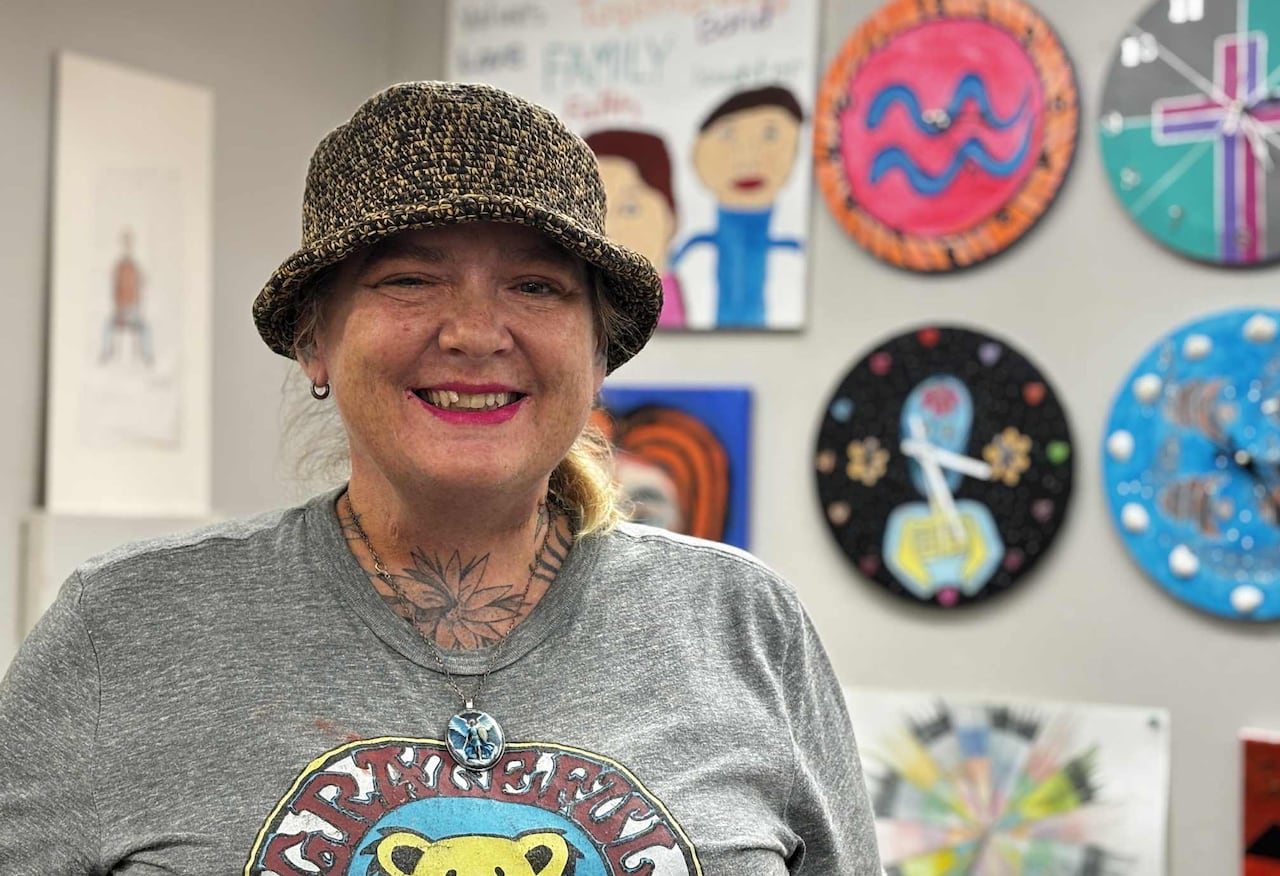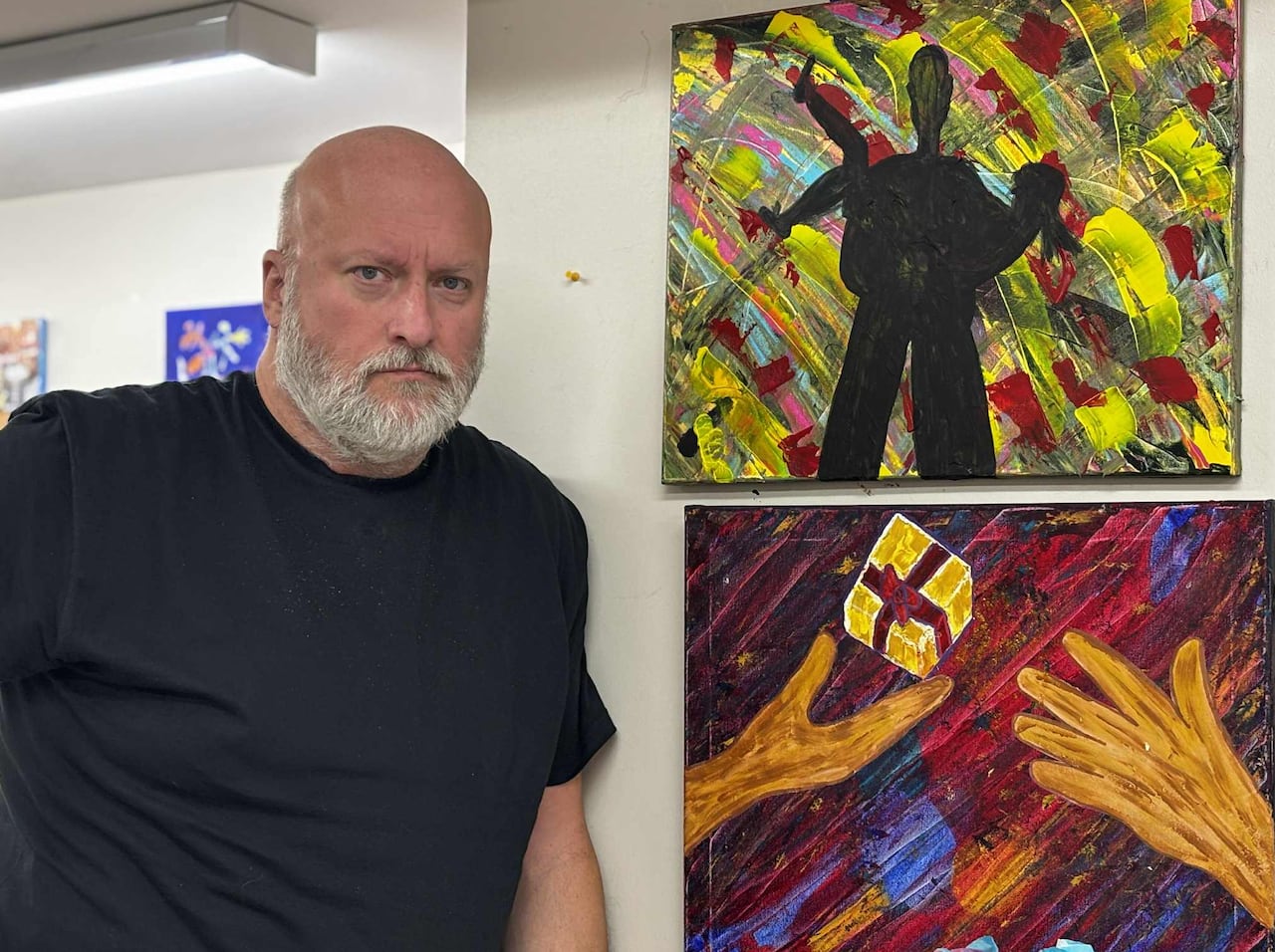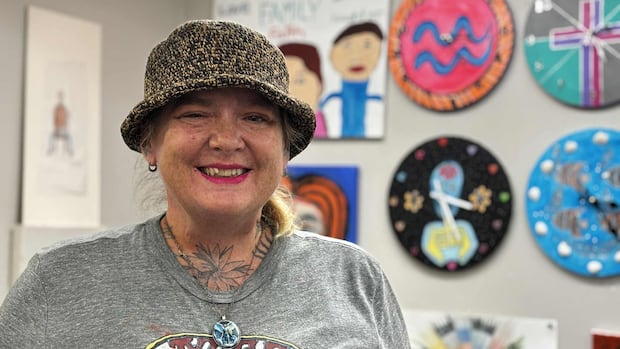Listen to this article
Estimated 5 minutes
The audio version of this article is generated by text-to-speech, a technology based on artificial intelligence.
After more than three decades helping Londoners facing mental health challenges explore their emotions through art, volunteers at a downtown studio say they need more support to keep the doors open.
City Art Centre is a volunteer-run, non-profit art studio for adults struggling with their mental health. Since the studio opened in 1992, it has offered free space and art supplies for Londoners in need.
“It gives people hope. It gives them a place,” said City Art Centre art co-ordinator Gerry Arnold. “I’ve seen so many cases where people have come out of their shells. I’m one of them.”
The City Art Centre studio is in the basement of the Innovation Works building at 201 King Street. The walls of the studio tell the story of the participants who have come through City Art Centre over the years, with a colourful mix of paintings, drawings and multi-media projects on display.
 City Art Centre volunteer coordinator Carrie Vanderheyden stands next to some of her painted clocks, which are on display at the studio this month. Vanderheyden first visited the studio more than a year ago to help with her own schizoaffective disorder, but continues volunteering to give back. (Kendra Seguin/CBC News)
City Art Centre volunteer coordinator Carrie Vanderheyden stands next to some of her painted clocks, which are on display at the studio this month. Vanderheyden first visited the studio more than a year ago to help with her own schizoaffective disorder, but continues volunteering to give back. (Kendra Seguin/CBC News)
Participants have access to free paints, coloured pencils, pastels and craft supplies, or can bring in their own materials to work on a project of their choice.
Volunteer coordinator Carrie Vanderheyden has helped operate the centre for about a year, but attended as a participant before that to work through her schizoaffective disorder, she said.
“I got started because I was working on my recovery with mental health. I heard about this place. I didn’t even know I could do art, but I tried doing art,” she said. “It’s just turned into a lifestyle now. Every day I’m doing some kind of art and it makes me feel great.”
Arnold, who was a participant for three years before becoming a coordinator for five years, said he uses art to help explore his post-traumatic stress disorders, and has even brought his artwork to counseling sessions to talk about the physical abuse he survived as a child.
 Gerry Arnold is the art coordinator at City Art Centre in downtown London, Ont. He continues to create paintings to help with his own post-traumatic stress disorders while helping run the centre two days a week. (Kendra Seguin/CBC News)
Gerry Arnold is the art coordinator at City Art Centre in downtown London, Ont. He continues to create paintings to help with his own post-traumatic stress disorders while helping run the centre two days a week. (Kendra Seguin/CBC News)
“I was not able to talk about it for years, but I talked about the painting. I was really talking about the incident and I was really talking about the hurt. That painting gave me the ability to speak what I couldn’t say for years,” Arnold said.
“Art is a form of expression. I use it myself as my heartbeat. I consider art my first language,” he said.
Recovery includes socialization
Although City Art Centre is specifically for adults who struggle with mental health, the studio has a drop-in model where no references or proof are needed.
“Just that extra step of going and getting a note from a doctor can be devastating for some people,” Arnold explained. “We’re trying to help, not trying to add to the things they have to deal with.”
Still, Arnold said the studio is not for everybody.

